Best yarn to crochet with for beginners (and the ones you should avoid)
There’s no crocheting without yarn, picking the very best yarn to crochet with for beginners and even the advanced crocheter is of utmost importance. The best yarn to crochet for any beginner is any inexpensive lightweight yarn which can be either a DK or worsted weight (Aran) in just a single color! Examples include 24/7 cotton, Pound of love, Brava Worsted, Wool of Andes Worsted Tweed
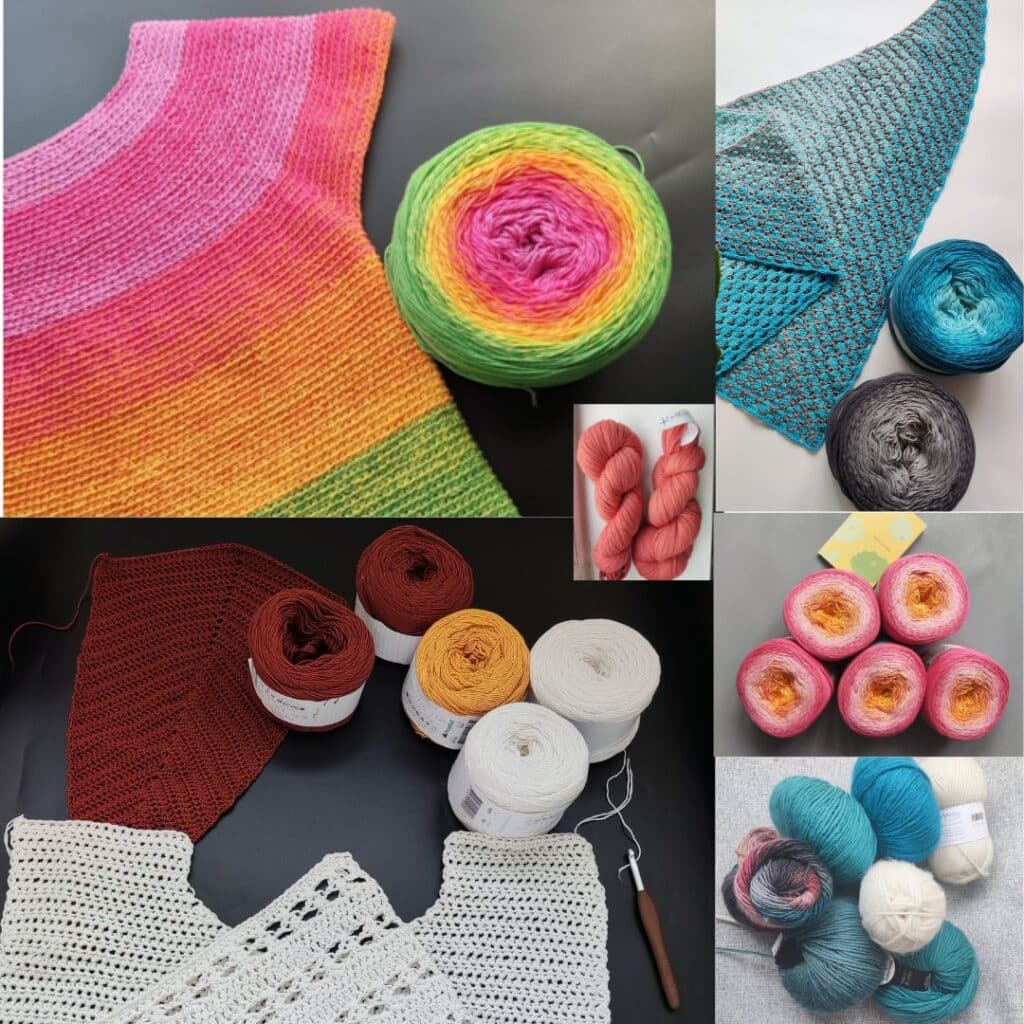
Picking the best yarn for any project is as important as completing it. The right yarn is peculiar to the type of project, which could be either blankets, sweaters, amigurumi, shawls, etc.
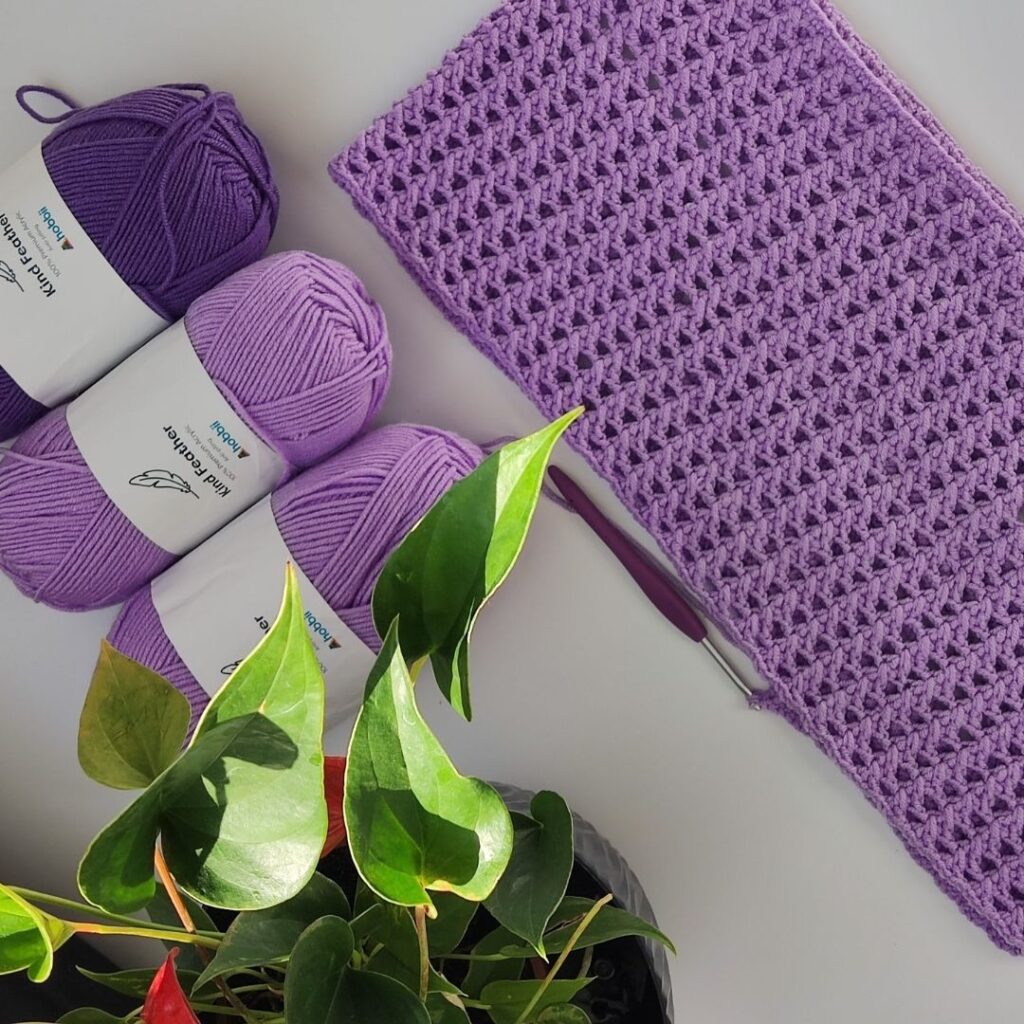
The best yarn to crochet with for beginners is a lightweight yarn that can either be a DK weight or worsted weight yarn is the recommended yarn for beginners. These yarn weights can also be written or described in numbers – #3 (double knit) or #4 worsted weight yarn in a single color.
Using a single color of yarn is important for beginners as it can be cumbersome to keep track of your piece with multiple colors or self-changing colored yarn. When it comes to the type of yarn, a cotton blend is highly recommended.
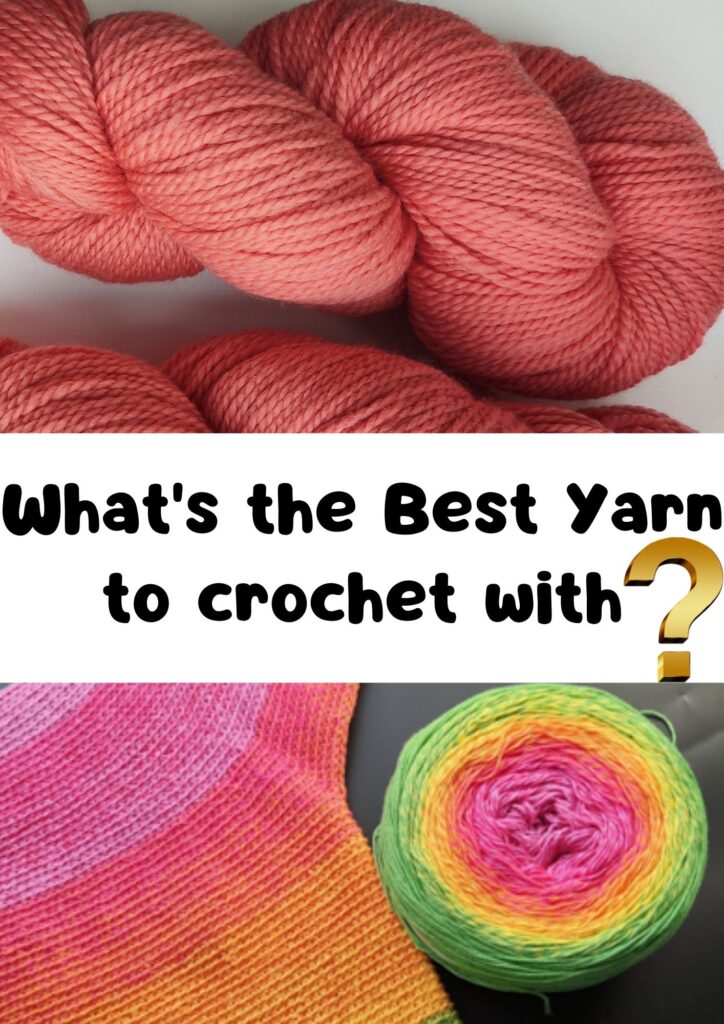
However, picking the best yarn to crochet with depends on quite a number of other things, which are discussed in detail below.
A gentle yarn on the skin is generally preferred when making crochet items for babies. Yarn that has certain percentages of cotton – from 100% cotton to cotton blends is preferred.
The best yarns to crochet with for an absolute beginner have been classified these yarns into their weight, fiber content, and projects.
The best yarn to crochet with, according to the project
When it comes to making your crochet projects, it is important to use the very best yarn. One important thing to remember is that the yarns vary with different designs.
Garments – This would depend on the season, type of garments, and how much time you have to make them.
Blankets – Crocheting blankets can be daunting, especially for a beginner. Choosing the best yarn for blankets is crucial. Recommended yarns for blankets are any yarn from worsted weight to chunky Aran yarns. Examples include – 24/7 cotton, Pound of Love, Brava Worsted, and Wool of Andes Worsted Tweed.
More in-depth crochet articles to help you become a better crocheter include
Beginners guide to crocheting a sweater
Best crochet stitches for crocheting a sweater
Everything you need to know about Blocking
How to perfect the single crochet stitch
The best yarn to crochet with according to weight
Lightweight to medium-weight yarn is a good place to start. Examples of DK weight yarn include Lionbrand Coboo, turbo, Stylecraft Special DK
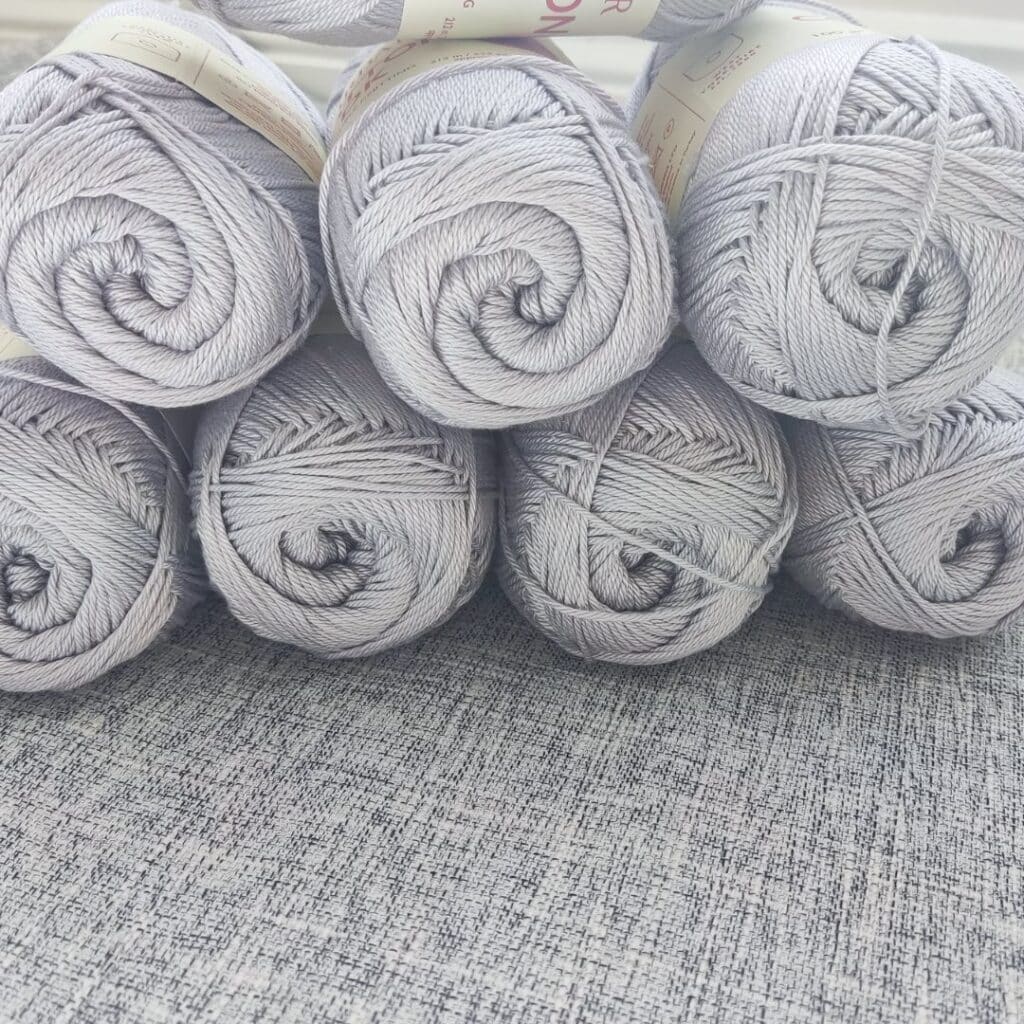
The best yarn to crochet with according to fiber content
Cotton yarn -Example of 100% cotton yarns includes
Pros
- Eco-friendly
- Perfect for projects intended for use in warm weather.
- Strong gives a beautiful stitch definition. Think of this class of yarn when you want to make a project that would last.
- Perfect for anyone with allergies.
- Machine wash safe.
Cons
- Lack of elasticity as seen in Acrylic yarns.
- Can be costly
- Finished projects tend to be heavier than those made using Acrylic.
Acrylic yarn – This category of yarn seems to be the most common and readily available yarn in the market.
Pros –
- Cost – Acrylic yarns are cheap and best for anyone on a yarn budget.
- Acrylic yarn comes in various weights with many colors for you to choose from.
- They are easy to wash, and best when machine washed.
- They do not shrink but rather.
Acrylic yarn Cons –
- They are made from plastic; if you are looking for eco-friendly yarn, Acrylic yarns are not for you.
- Acrylic yarns pill a lot.
- They are not breathable – Best to avoid them when making projects that would be used in warm weather.
Examples of 100% Acrylic yarn include
Blends
These can be varying percentages of cotton mixed with any other type of yarn.
Example of mixtures includes
1. 50% Cotton, 50% Rayon from Bamboo – Which is the composition of Lion brand Coboo
2. 50% cotton, 50% polyester, as seen in Comfy Cotton Blend yarn
Wool
Nylon, polyester, and so on.
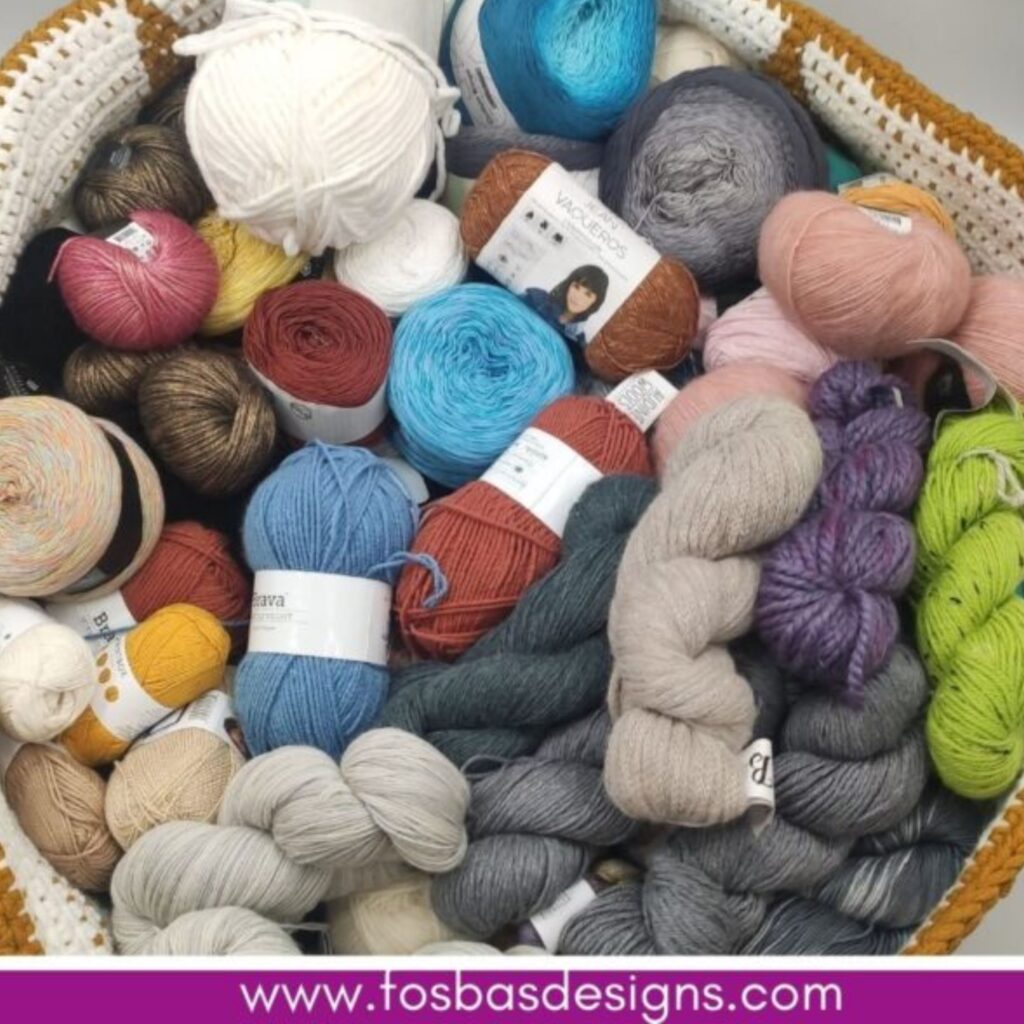
Understanding yarn PLY
The term yarn PLY can be confusing even to experienced crocheters. There are a few yarn terminologies that we need to take into consideration.
Yarn weight – This is simply referring to how thick the yarn is. This does not mean how heavy the yarn is.
Location – either the UK or the US- affects the meaning of yarn terminologies. I have added these to the category of yarn below.
So, Ply refers to how many strands of yarn are spun together. Note that you can find a thick yarn with just one PLY (just one strand of yarn) and also, another yarn with 6 strands of yarn spun together, and this 6-stranded yarn still looks much thinner when compared to the single Ply yarn.
In case you are wondering what PLY refers to, Australians use ply as a form of identification of yarn weights.
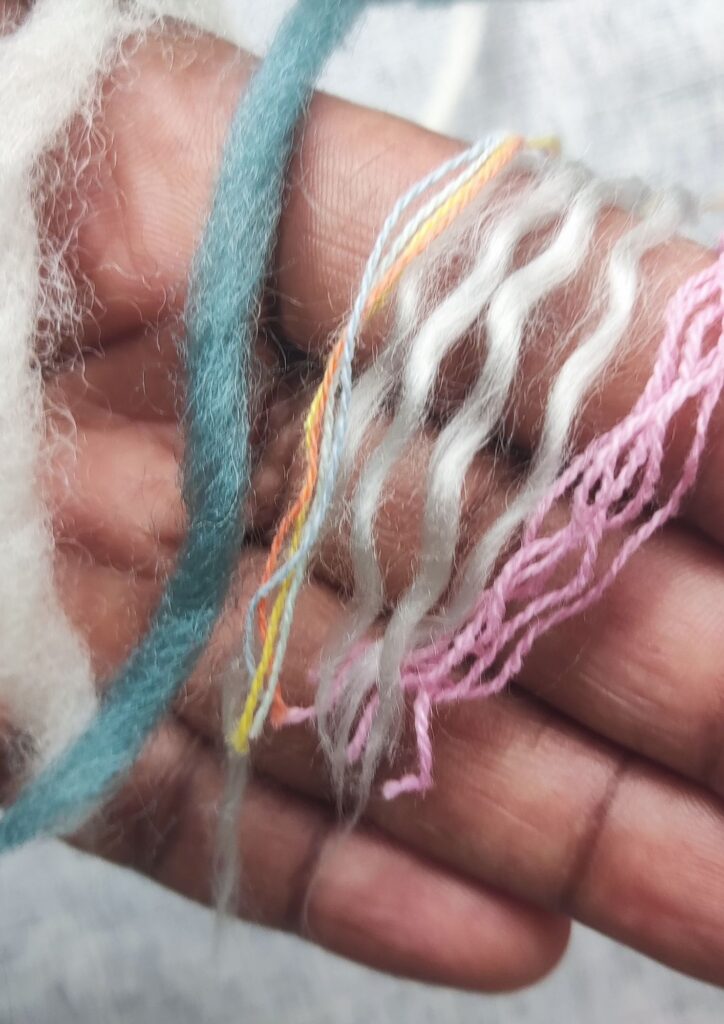
Types of yarn according to their weight
Yarn comes in various sizes, which is used to classify the yarn into various categories. The types range from the tiniest to the biggest.
According to the Craft Yarn Council, eight (8) types of yarn weights exist.
These include – Lace weight, superfine, fine, light, bulky, super bulky, and Jumbo.
The names above are a form of classification with numerous yarns under each class.
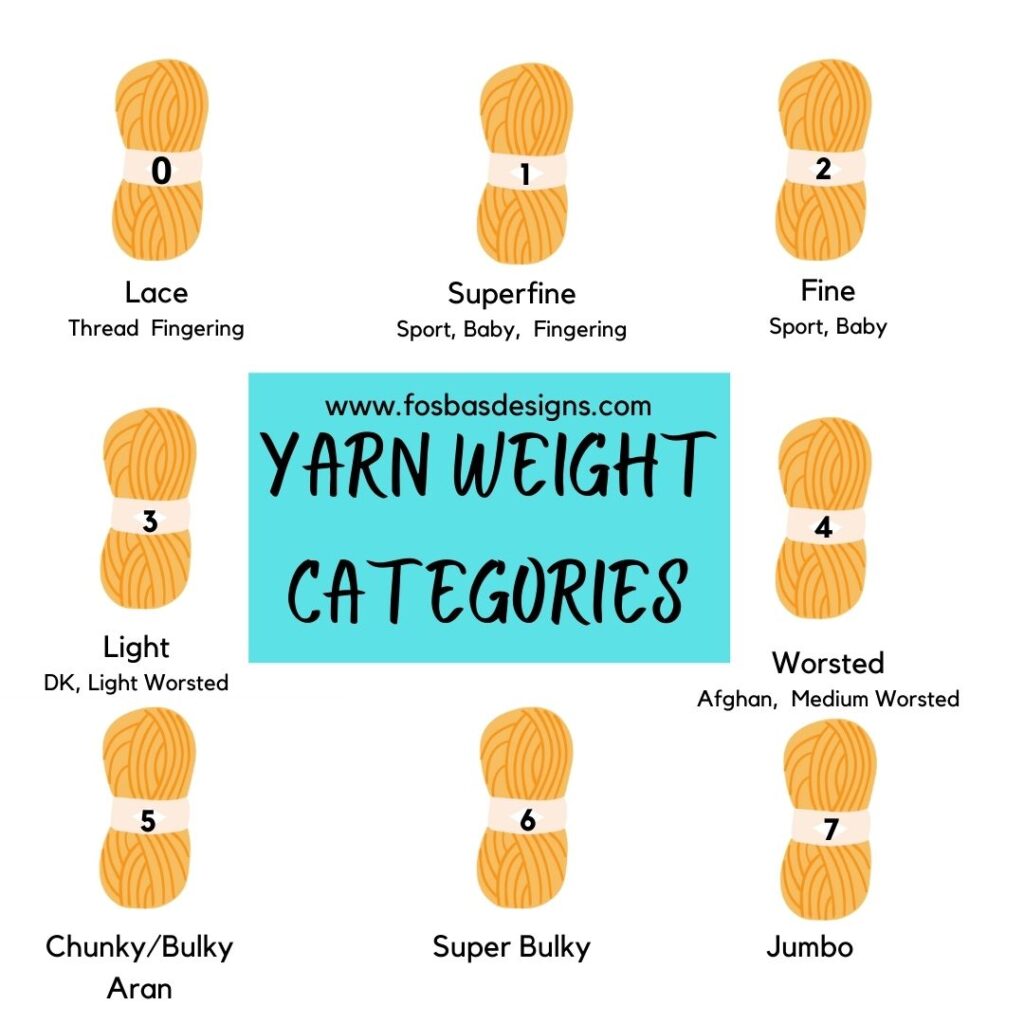
0 – UK Lace Weight/ US Fingering weight/ Crochet thread
Yarns that are fingering and crochet threads fall into this category. Lace-weight yarn is perfect for super lightweight projects, from knitting and crocheting. Items that can be made include earrings, dollies, shawls, and garments. You need extra loads of patience when projects with this weight.
1 – Super Fine/UK 4PLy/ US Fingering / Sport
Sock, certain fingering, and baby yarns fall under this category. While yarns in this category are thin and much lighter to work with, they are somewhat thicker than the yarns under laceweight. These make the best types of socks, lightweight baby projects, and even shawls and garments. If you crochet slowly, this might also not be the best weight of yarn for you to crochet with.
2 – Fine
Yarn under this category includes any yarn staged sport weight and certain baby yarns. Most people classify superfine and Fine weights of yarn as the same. As such, similar projects as those listed above would be perfect.
3 – Light
This category includes Dk (also called Double Knit) and light worsted weight yarns.
Lightweight yarns are perfect for crochet garments such as crochet tops, crochet sweaters, cardigans, and accessories like crochet shawls, scarves, beanies, and cowls. This yarn is best for a beginner and perfect for almost all crochet and knitting projects.
4 – Medium
Yarns under this category include worsted, Aran weights. Note that lightweight worsted yarns are included under #3 above. Yarn companies manufacture worsted-weight yarns in 2 different categories. It is crucial to take note when purchasing yarn.
5 – Bulky
Yarns under Bulky weight include yarn tagged as Chunky yarn. This yarn makes pretty crochet projects that work up pretty quickly. Pair chunky weight yarns with a larger size of crochet hooks, and you would have your finished project in no time. This weight of yarn is best for a beginner crocheter.
6 – Super Bulky
Yarns in this category are tagged as super bulky and Roving yarns.
7 – Jumbo
Yarn in this category is pretty heavy and makes perfect super-fast projects. Some even use it for arm knitting or crocheting. If you are fast and want to complete a blanket at a sitting or weekend, then this weight of yarn is the best for you to crochet with.
| Numbers | Yarn Examples | PLY |
| #0 | Lace | 1-3 |
| #1 | Superfine | 4 |
| #2 | Fine | 5 |
| #3 | Light | 8 |
| #4 | Medium | 10 |
| #5 | Chunky | 12 |
| #6 | Super Chunky | 14 |
| #7 | Jumbo | 16 |
How to identify yarn weights without labels
There are situations when yarn labels can not be seen, and one is desperate to identify the weight of the yarn.
Wrap per inch is a technique perfect for identifying yarn weight.
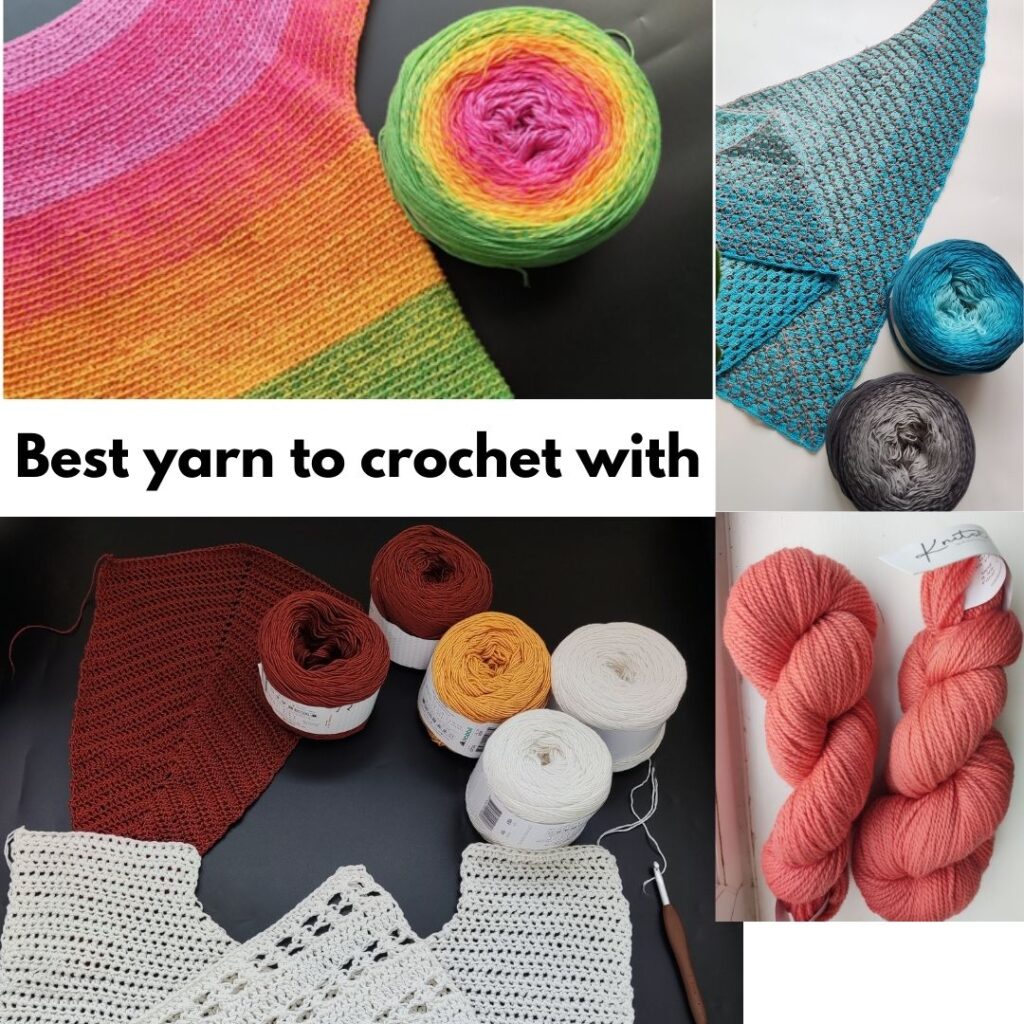
Yarns to avoid as a beginner
- Black-colored yarns – Crocheting with black or other dark-colored yarn can be challenging as it is very difficult to see into the stitches. If you have no other substitute ls, make sure to crochet in a well-lit area. This snood was made using black yarn!
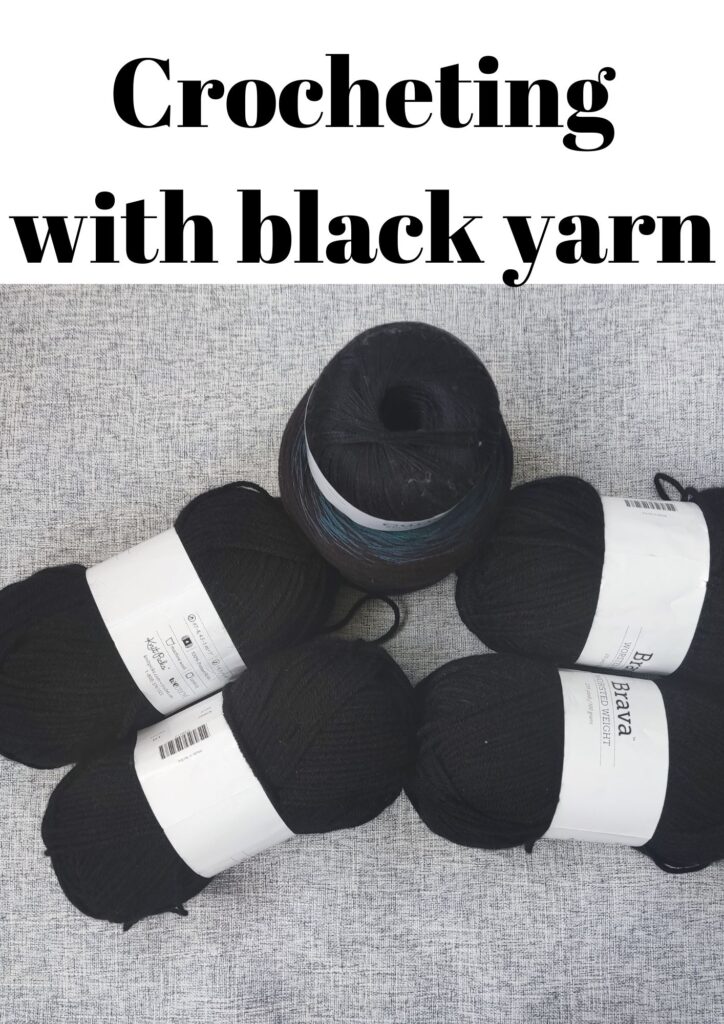
Highly textured yarn – This type of yarn can be difficult to crochet with as it is difficult to differentiate and identify the stitches because of the varying textures or thickness.
Variegated yarns – This yarn category has multiple colors that are closer to each other. It makes it difficult for a beginner to see and appreciate the stitches in their work. What to do? Instead, pick a single/solid Color of yarn for your project.
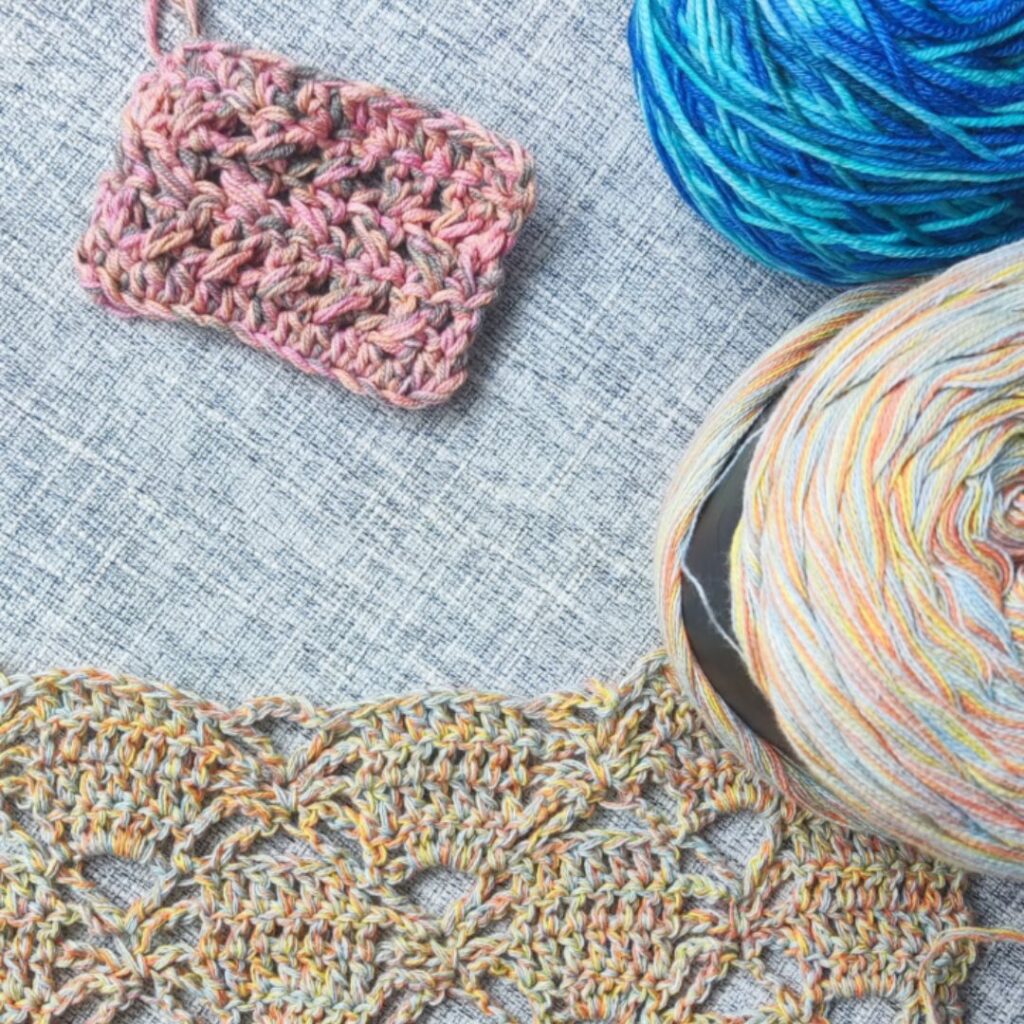
Too thin or thick yarns like thread or super bulky yarns – When you use thin yarns like thread, it is usually challenging to handle the fiber, and it also makes a project look rather too lengthy in terms of time.
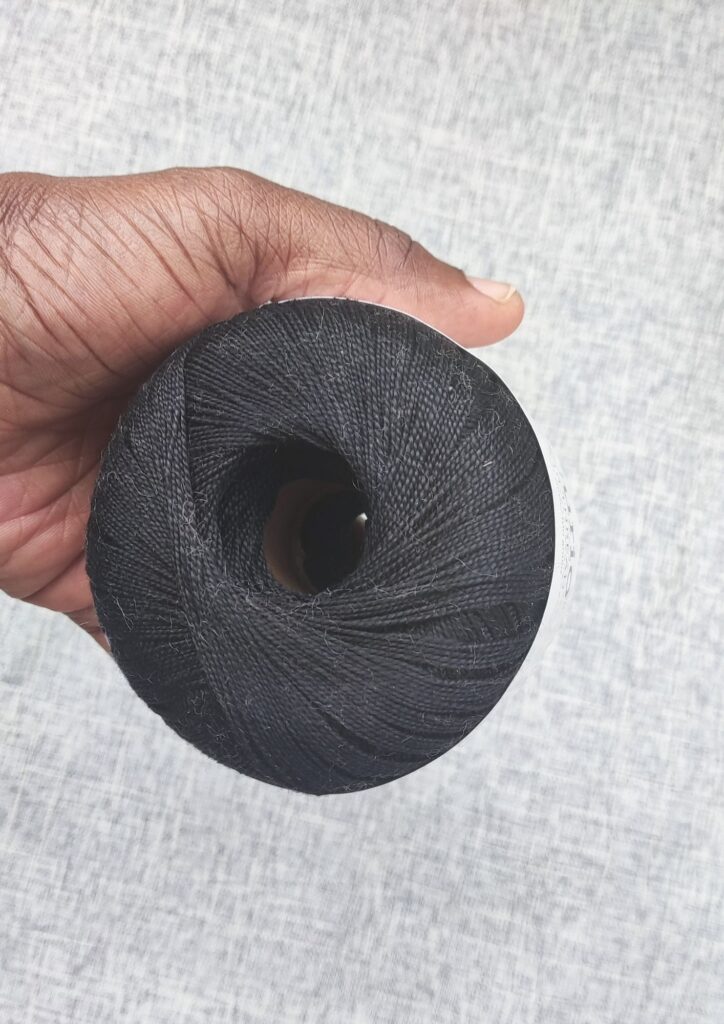
Roving yarns (single-ply yarn) – This yarn category is loosely spun, which means that the fibers in the yarn can easily come apart – split. It can be challenging to unravel or undo any mistakes made when Crocheting with roving yarns, especially when it has been left for a while. These yarns become “caked” together, making it difficult, if not impossible, to “frog” undo a mistake. Instead, pick well-spun yarns and have more ply.
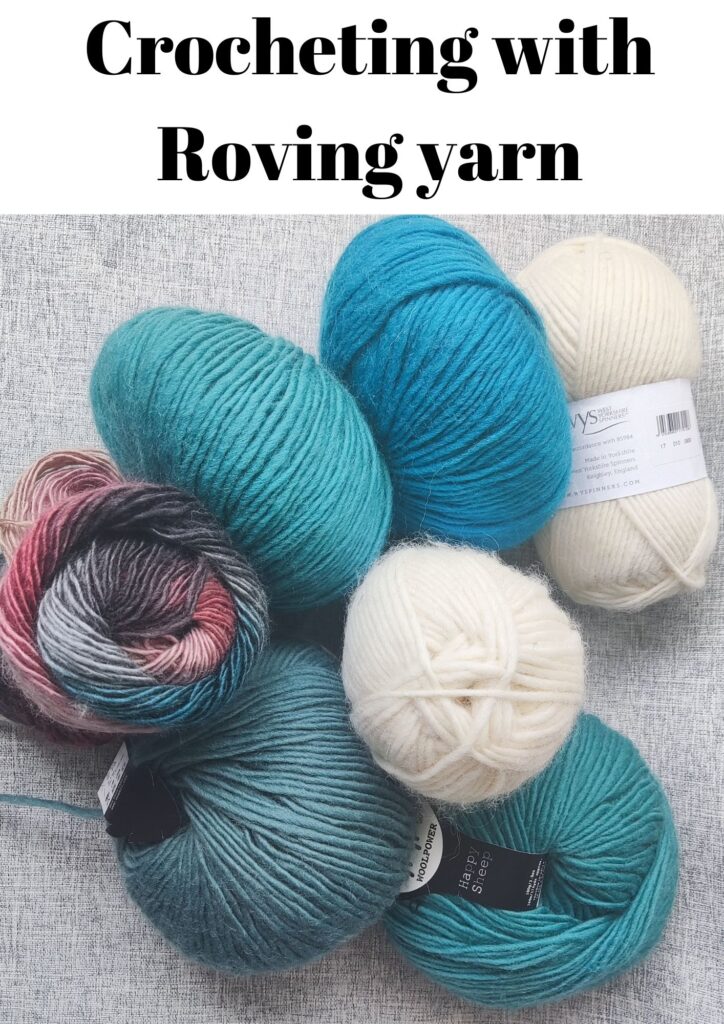
Fuzzy yarns include fir faux yarns, fleeces, and eyelash yarns. This yarn category makes it difficult to see the stitches you are Crocheting into. I have, however, provided 24 tips and tricks to help you navigate crocheting with fuzzy yarns in this post. The baby sleeping bag was made using fur yarn.
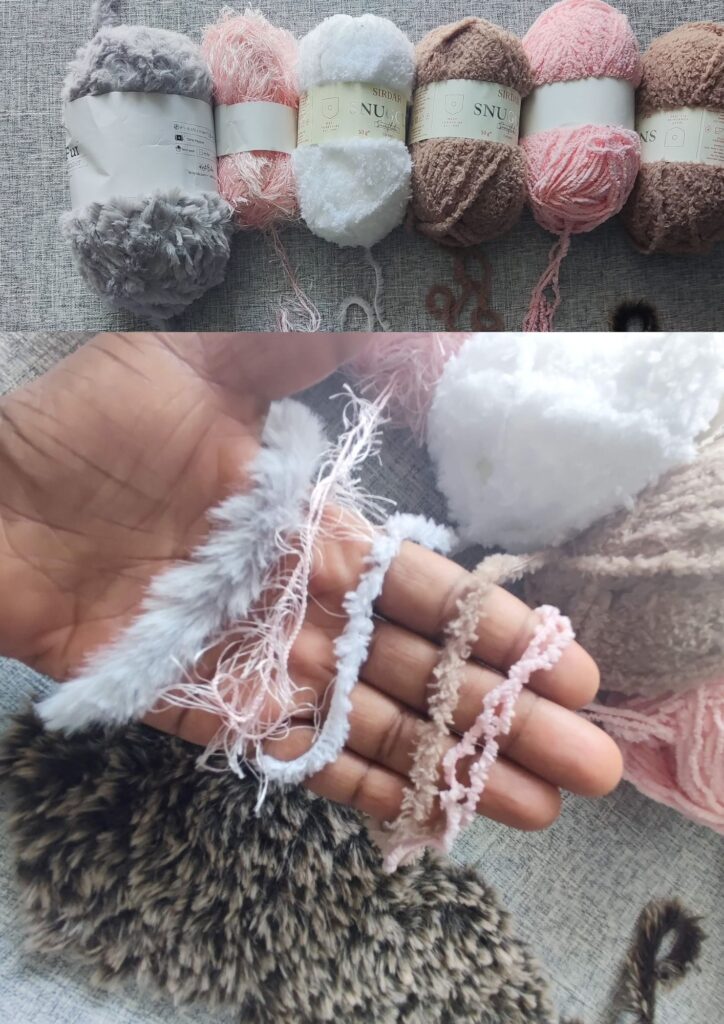
I hope the next time you find yourself in a yarn store, or ready to order yarn online, you will be confident with the guidelines provided in this post and pick the best yarn for your next crochet project.
More crochet projects to check out on the blog.
Best yarn to crochet with and the ones to avoid
How to Crochet a Sweater for a Beginner
Real-time to crochet a sweater
Real-time it takes to crochet a hat
How to Crochet a Magic Ring
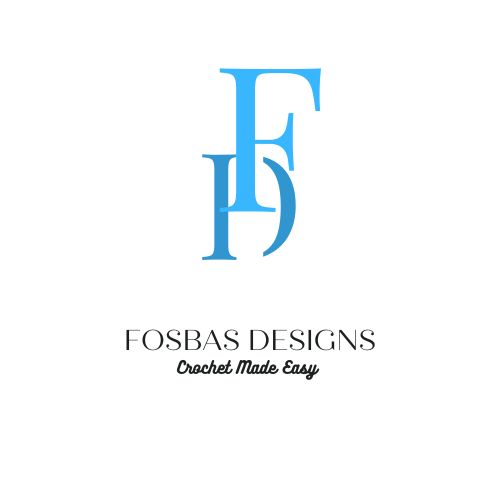
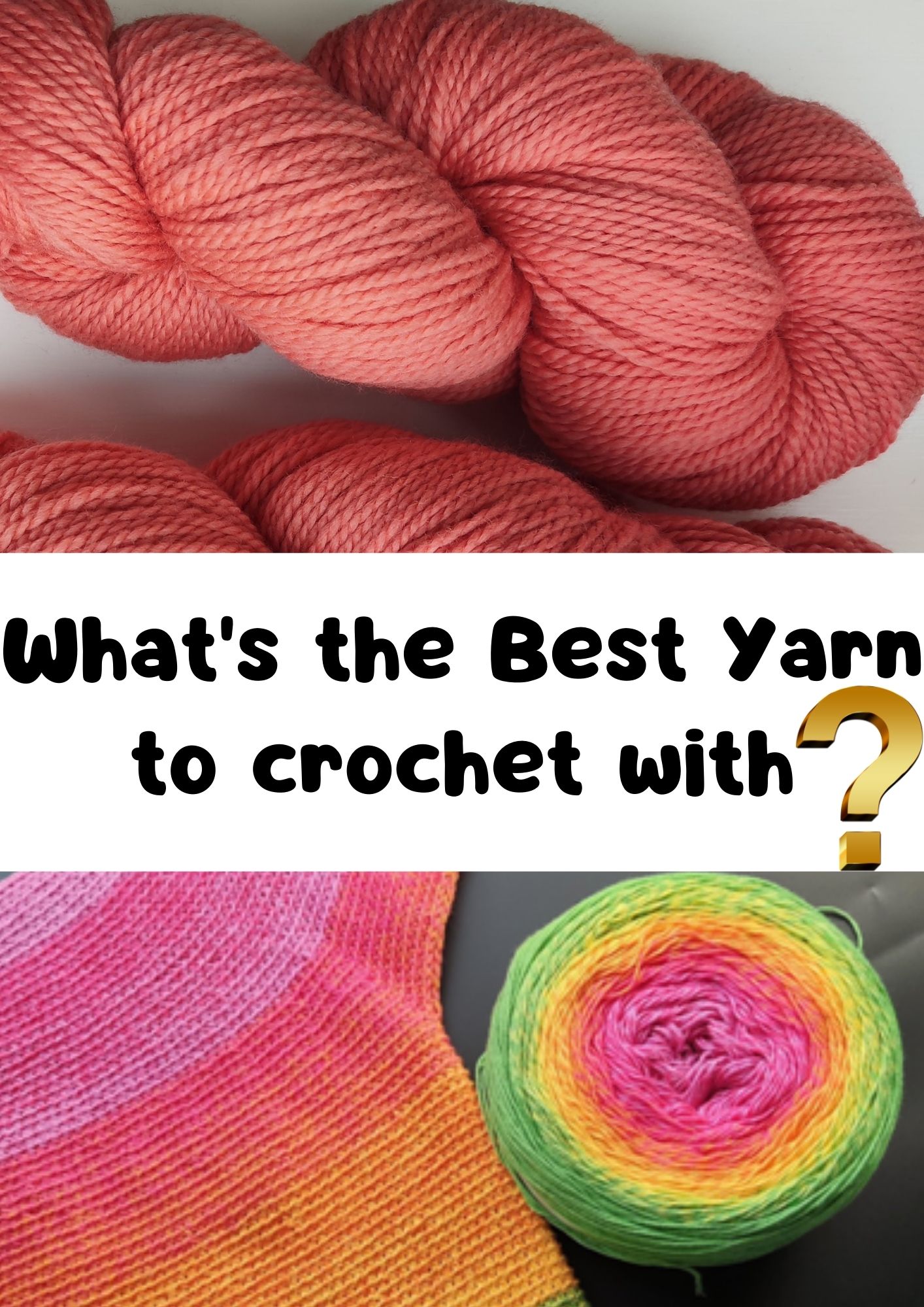
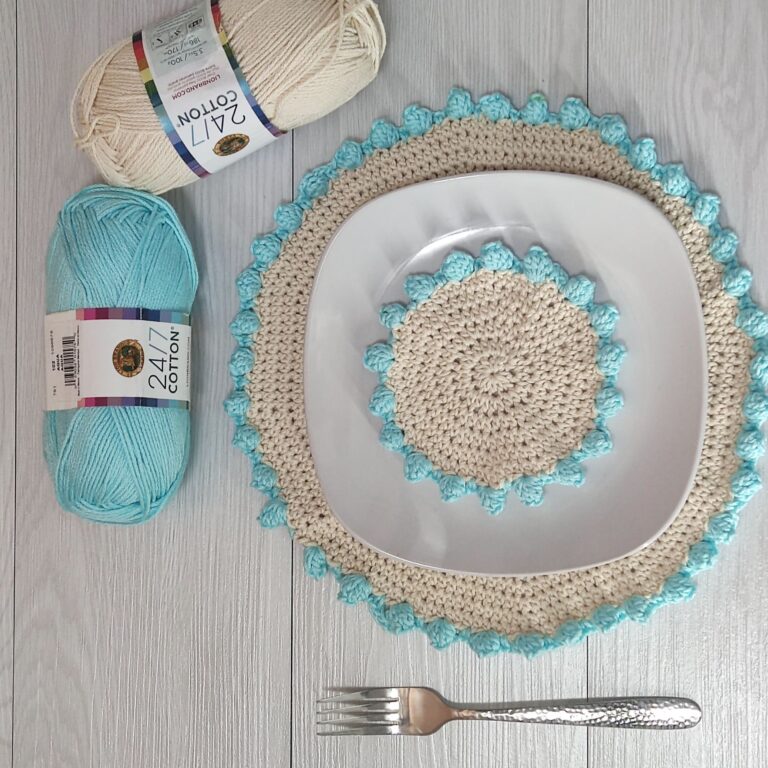
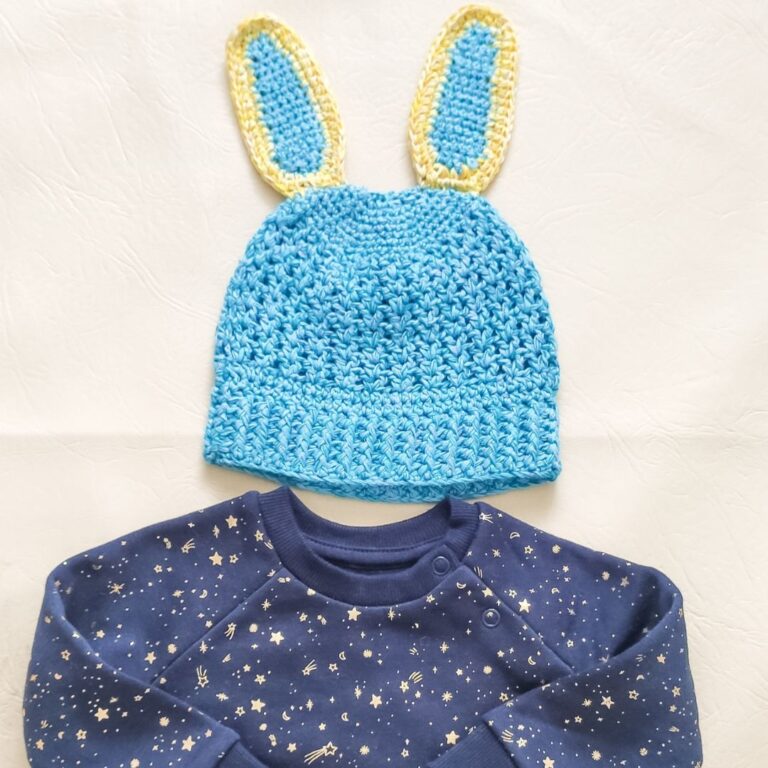
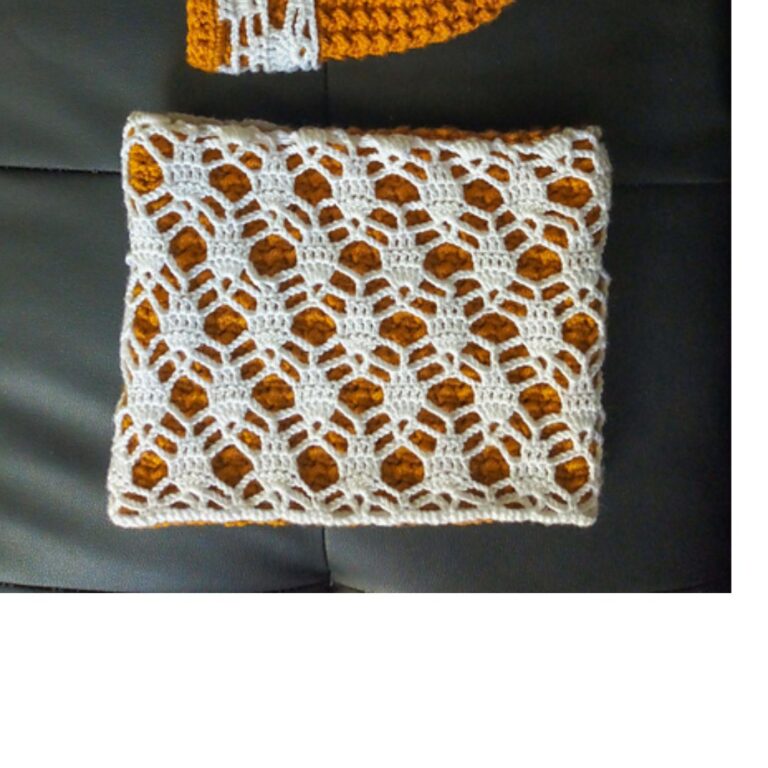
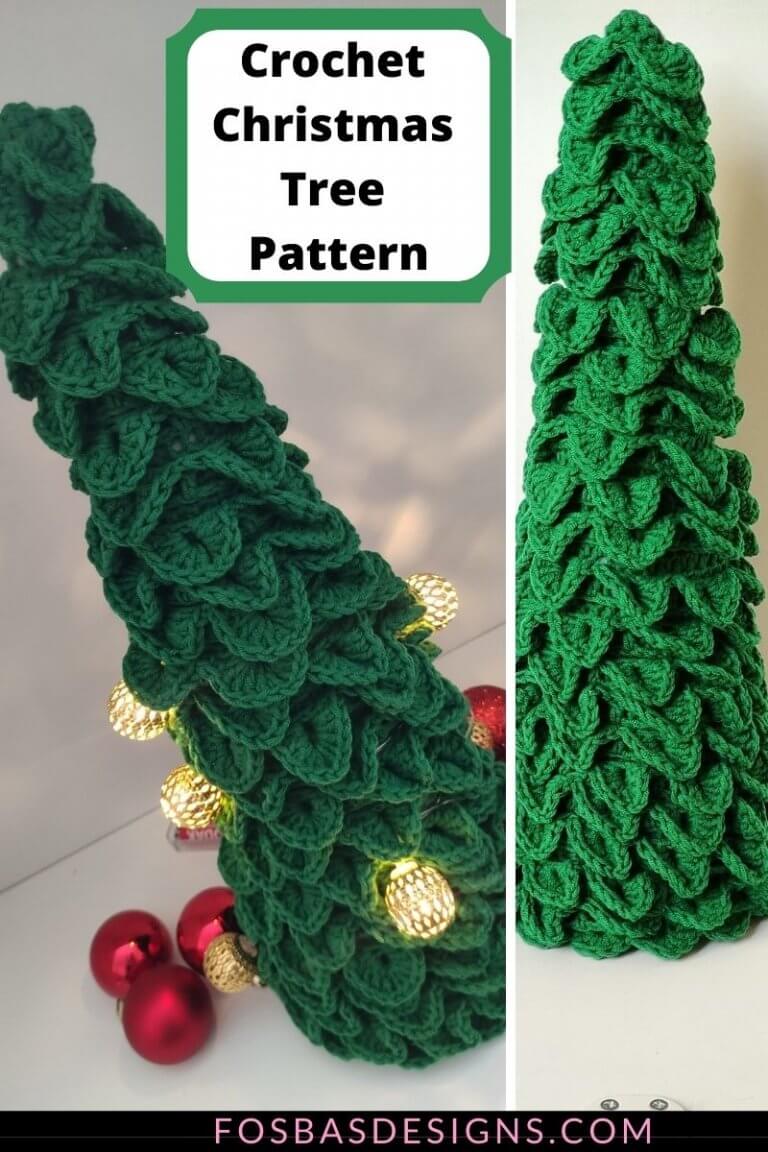
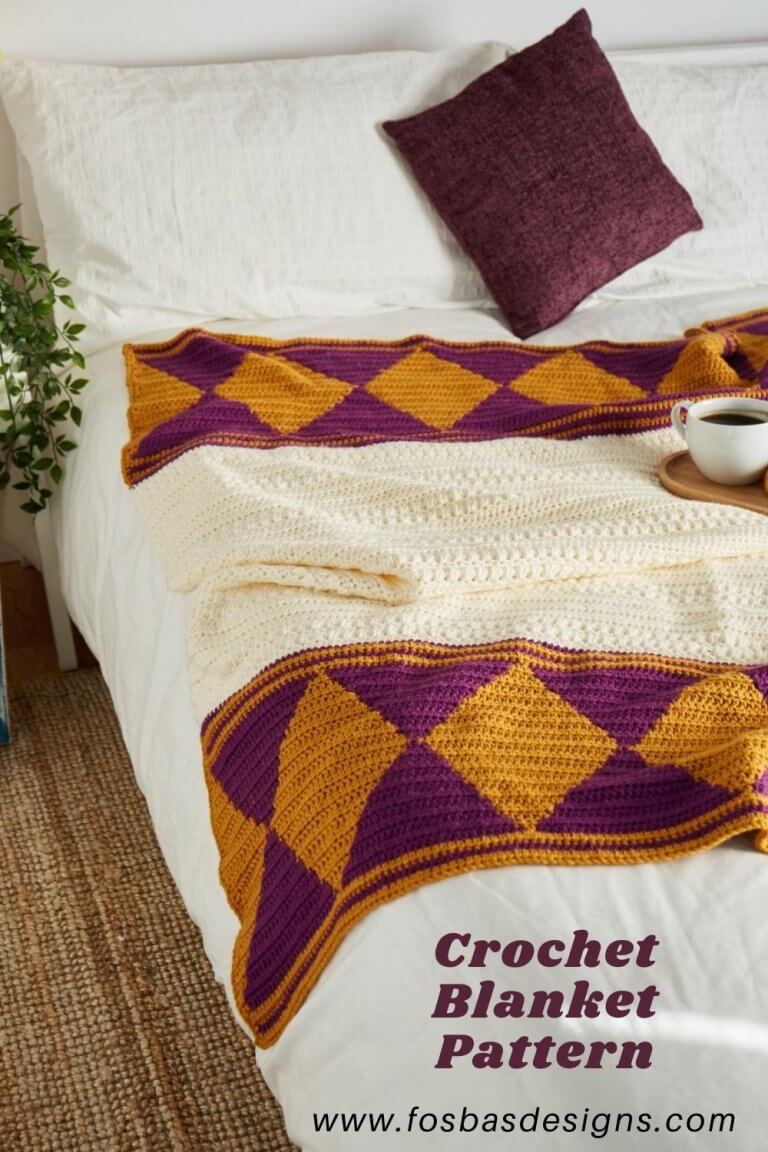
thank you for a great article. it answered several questions I have wondered about lately. I have always crocheted afghans and only recently started trying to crochet tops.
Glad the article is insightful.